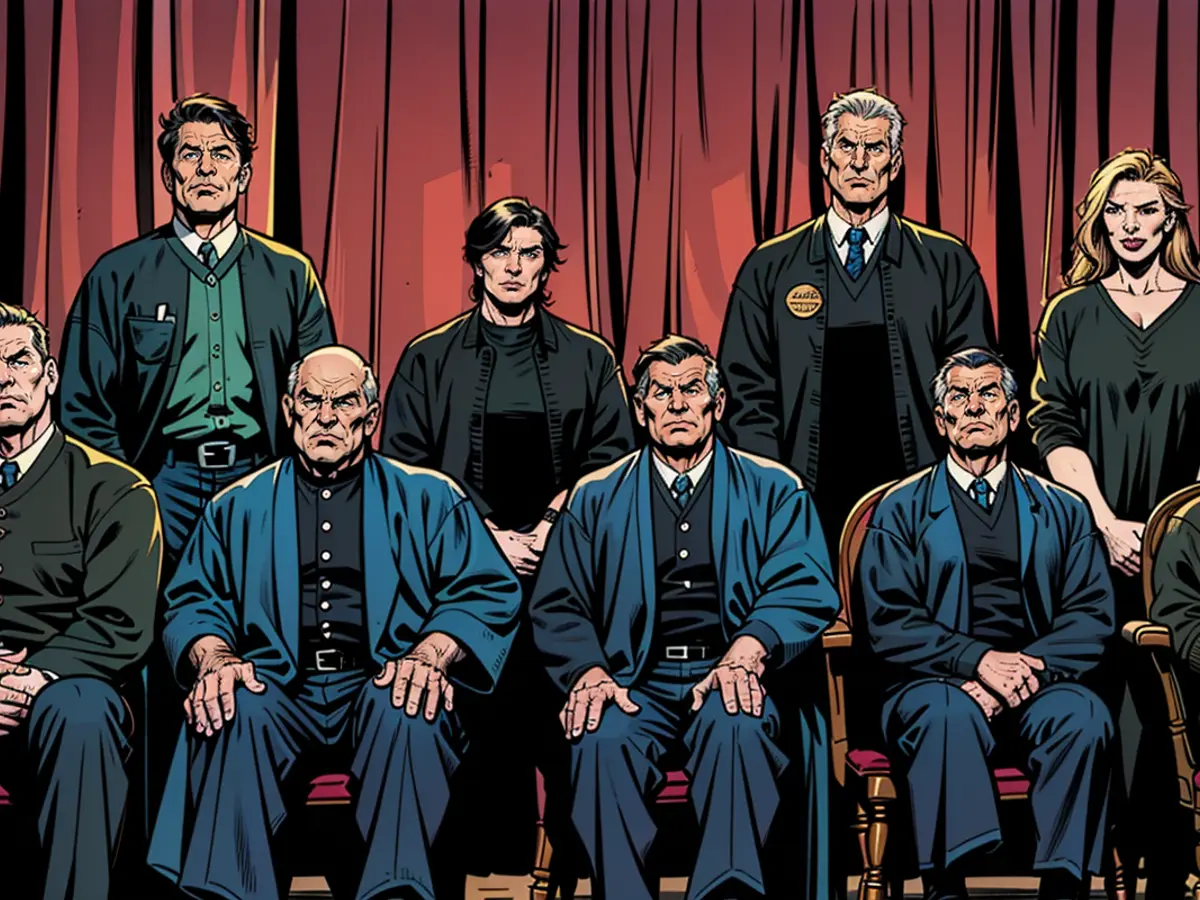Justice - US-President Biden will reform the Supreme Court
US-President Joe Biden will reform the United States Supreme Court and present his plans today. The Democrat will propose limiting the tenure of Supreme Court justices and implementing a enforceable ethics code, a US government representative stated. Additionally, Biden intends to propose a constitutional amendment clarifying that no president is above the law, meaning that former presidents cannot be shielded from prosecution for crimes committed during their tenure.
Biden's proposals would need to be passed by Congress, which, given the current majorities in the US Congress, is considered unlikely. In particular, for a constitutional amendment, there are high hurdles.
Biden considers these reforms "in light of this crisis of trust in democratic institutions in America," the representative added. In recent years, the Court has overturned landmark precedents: It, for instance, limited the right to self-determination for women and granted the president near-immunity for crimes committed during their term. Ethics scandals have raised questions about the fairness and independence of the Supreme Court.
The three proposed changes in detail:
- Term limits for justices
The nine justices of the Supreme Court are appointed for life. Their selection is a fiercely contested political process. Former President Donald Trump placed three justices on the Supreme Court during his term (2017-2021), making six of the nine currently considered conservative.
Biden plans to propose a system where the president appoints a justice or justice every two years, who then serves for eighteen years. This, it was stated, would contribute to the composition of the Court changing with a certain regularity. Such a system would also reduce the likelihood that "a single presidency exerts an inappropriate influence on future generations."
- Binding code of conduct
Last year, reports of expensive gifts to Supreme Court Justice Clarence Thomas sparked an ethics debate. Supreme Court justices had subsequently agreed to a code of conduct, but its enforceability was questionable.
Biden aims to achieve having Congress pass binding conduct rules. In this, it should be stipulated that justices disclose gifts and abstain from political activities in public. Justices should also be required to recuse themselves from cases in which they or their spouses have conflicting interests.
- Constitutional amendment on immunity
The Constitution does not explicitly grant presidents immunity, not even during their time in office. However, the Department of Justice traditionally holds that presidents, at least during their time in the White House, cannot be indicted. A few weeks ago, Trump scored a historic victory at the Supreme Court: The Court ruled that he enjoys broad protection from prosecution for actions taken during his presidency.
Biden now plans to bring a constitutional amendment to a vote, which would clarify that "no president is above the law," meaning that former presidents cannot be shielded from prosecution for crimes committed during their tenure.
Trump criticized the plans earlier.
Trump criticized the plans as US media reported on them for the first time in the past week. "The Democrats are trying to interfere in the presidential elections and destroy our justice system by attacking their political opponent, me, and our esteemed Supreme Court," he wrote on his online platform Truth Social.
Trump is the Republican presidential candidate and aims to replace Biden in the White House after the election on November 3. Harris, the Democratic vice-presidential nominee, is expected to run for president, following Biden's withdrawal from the race less than a week ago.
- Joe Biden's Supreme Court reforms include limiting the tenure of Supreme Court justices, a proposal that will be presented to the US Congress today.
- Given the current majorities in the US Congress, it is considered unlikely that Biden's proposals will be passed, particularly a constitutional amendment.
- The Supreme Court has faced criticism for overturning landmark precedents, limiting women's rights and granting presidents near-immunity for crimes committed during their term.
- Donald Trump, the former US-President, placed three justices on the Supreme Court during his term, making six of the nine currently considered conservative.
- Biden's plan to propose a system where the president appoints a justice every two years, who then serves for eighteen years, aims to change the Court's composition with a certain regularity.
- Ethics scandals have raised questions about the fairness and independence of the Supreme Court, with Justice Clarence Thomas' acceptance of expensive gifts sparking an ethics debate last year.








